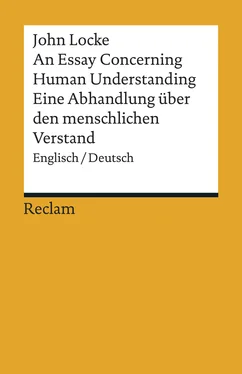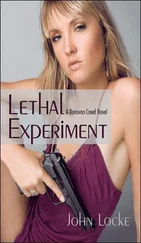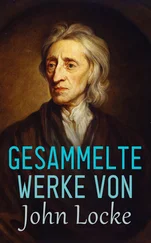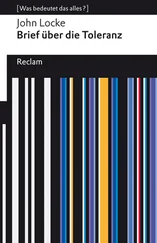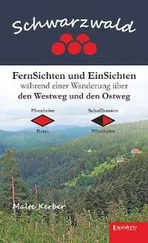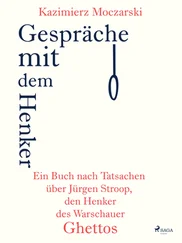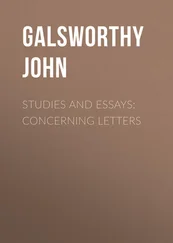§ 18. […] And I desire those who lay so much stress on the sound of these two Syllables, Substance , to consider, whether applying it, as they do, to the infinite incomprehensible GOD, to finite Spirit, and to Body, it be in the same sense; and whether it stands for the same Idea , when each of those three so different Beings are called Substances ? If so, whether it will thence follow, That God, Spirits, and Body, agreeing in the same common nature of Substance, differ not any otherwise than in a bare different modification of that Substance ; as a Tree and a Pebble, being in the same sense Body, and agreeing in the common nature of Body, differ only in a bare modification of that common matter; which will be a very harsh Doctrine. If they say, That they apply it to God, finite Spirits, and Matter, in three different significations, and that it stands for one Idea , when GOD is said to be a Substance ; for another, when the Soul is called Substance ; and for a third, when Body is called so. If the name Substance , stands for three several distinct Ideas , they would do well to make known those distinct Ideas , or at least to give three distinct names to them, to prevent in so important a Notion, the Confusion and Errors, that will naturally follow from the promiscuous use of so doubtful a term […].
[190]§ 19. They who first ran into the Notion of Accidents , as a sort of real Beings, that needed some thing to inhere in, were forced to find out the word Substance , to support them. […] So that of Substance , we have no Idea of what it is, but only a confused obscure one of what it does.
[…]
§ 21. But to return to our Idea of Space . […] where nothing hinders […] a Body put into motion may move on, as where there is nothing between, there two Bodies must necessarily touch. For pure Space between, is sufficient to take away the necessity of mutual Contact; but bare Space in the way, is not sufficient to stop Motion. The truth is, these Men must either own, that they think Body infinite, though they are loth to speak it out, or else affirm, that Space is not Body . For I would fain meet with that thinking Man, that can, in his Thoughts, set any bounds to Space, more than he can to Duration; or by thinking, hope to arrive at the end of either: And therefore if his Idea of Eternity be infinite, so is his Idea of Immensity; they are both finite or infinite alike.
§ 21. [bis]. Farther, those who assert the impossibility of Space existing without Matter , must not only make Body infinite, but must also deny a power in God to annihilate any part of Matter. No one, I suppose, will deny, that God can put an end to all motion that is in Matter, and fix all the Bodies of the Universe in a perfect quiet and rest, and continue them so long [192]as he pleases. Whoever then will allow, that God can, during such a general rest, annihilate either this Book, or the Body of him that reads it, must necessarily admit the possibility of a Vacuum . For it is evident, that the Space, that was filled by the parts of the annihilated Body, will still remain, and be a Space without Body. […] there is no necessary connexion between Space and Solidity , since we can conceive the one without the other. And those who dispute for or against a Vacuum , do thereby confess, they have distinct Ideas of Vacuum and Plenum , i. e. that they have an Idea of Extension void of Solidity, though they deny its existence; or else they dispute about nothing at all. For they who so much alter the signification of Words, as to call Extension Body , and consequently make the whole Essence of Body, to be nothing but pure Extension without Solidity, must talk absurdly, whenever they speak of Vacuum , since it is impossible for Extension to be without Extension. For Vacuum , whether we affirm or deny its existence, signifies Space without Body, whose very existence no one can deny to be possible, who will not make Matter infinite, and take from God a power to annihilate any Particle of it.
§ 22. But not to […] appeal to God’s Omnipotency to find a Vacuum , the motion of Bodies, that are in our view and neighbourhood, seem to me plainly to evince it. For I desire any one so to divide a solid Body, of any dimension he pleases, as to make it possible for the solid Parts to move up and down freely every way within the bounds of that Superficies, if there be not [194]left in it a void space, as big as the least part into which he has divided the said solid Body. And if where the least Particle of the Body divided, is as big as a Mustard-seed, a void Space equal to the bulk of a Mustard-seed, be requisite to make room for the free motion of the Parts of the divided Body within the bounds of its Superficies […]. And let this void Space be as little as it will, it destroys the Hypothesis of Plenitude . For if there can be a Space void of Body, equal to the smallest separate Particle of Matter now existing in Nature, ’tis still Space without Body; and makes as great a difference between Space and Body, as if it were Μέγα χάσμα, a distance as wide as any in Nature. […]
[…]
§ 26. To conclude, whatever Men shall think concerning the existence of a Vacuum , this is plain to me, That we have as clear an Idea of Space distinct from Solidity , as we have of Solidity distinct from Motion, or Motion from Space. […] our Idea of Space is […] distinct from that of Body . For whether we consider in Matter it self, the distance of its coherent solid parts, and call it, in respect of those solid parts, Extension ; or whether considering it, as lying between the extremities of any Body in its several dimensions, we call it Length , Breadth , and Thickness ; or else considering it as lying between any two Bodies, or positive Beings, without any consideration, whether there be any Matter or no between, we call it Distance . However named or considered, it is always the same uniform simple Idea of [196] Space , taken from Objects, about which our Senses have been conversant, whereof having setled Ideas in our Minds, we can revive, repeat, and add them one to another as often as we will, and consider the Space or Distance so imagined, either as filled with solid parts, so that another Body cannot come there, without displacing and thrusting out the Body that was there before; or else as void of Solidity, so that a Body of equal dimensions to that empty or pure Space, may be placed in it without the removing or expulsion of any thing that was there. […]
[…]
Of Duration, and its simple Modes
§ 1. THERE is another sort of Distance, or Length, the Idea whereof we get not from the permanent parts of Space, but from the fleeting and perpetually perishing parts of Succession. This we call Duration , the simple Modes whereof are any different lengths of it, whereof we have distinct Ideas , as Hours , Days , Years , etc. Time , and Eternity .
[…]
§ 3. To understand Time and Eternity aright, we ought with attention to consider what Idea it is we have of Duration , and how we came by it. ’Tis evident to any one who will but observe what passes in his own Mind, that there is a train of Ideas , which constantly succeed one another in his Understanding, as long as he is awake. Reflection on these [198]appearances of several Ideas one after another in our Minds, is that which furnishes us with the Idea of Succession : And the distance between any parts of that Succession, or between the appearance of any two Ideas in our Minds, is that we call Duration . For whilst we are thinking, or whilst we receive successively several Ideas in our Minds , we know that we do exist; and so we call the Existence, or the Continuation of the Existence of our selves, or any thing else, Commensurate to the succession of any Ideas in our Minds, the Duration of our selves, or any such other thing co-existent with our Thinking.
Читать дальше
